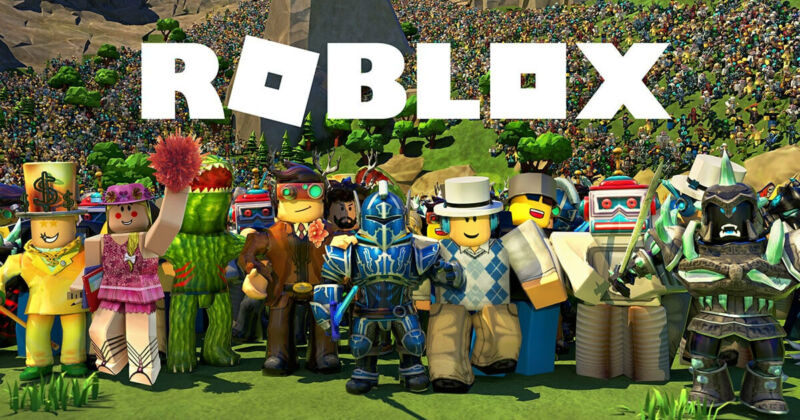
Roblox, the massively valued user-created gaming platform, has removed any mention of “games” from its user interface. It’s a seemingly small semantic change that nonetheless could have some major implications in the ongoing Epic Games v. Apple trial.
The Verge notes that what was once the “Games” tab on the Roblox website is now listed as “Discover” (though the URL still retains the old roblox.com/games/ address). Individual games are now referred to as “experiences” across the website and the mobile Roblox apps, while the word “game” seems to have been scrubbed altogether.
“The term ‘experiences’ is consistent with how we’ve evolved our terminology to reflect our realization of the metaverse,” a Roblox spokesperson told The Verge. “Roblox is an online community where people do things together in virtual worlds, and over the years, we began referring to these worlds as experiences, as they better represent the wide range of 3D immersive places—from obbys [obstacle courses] to virtual concerts—that people can enjoy together with their friends.”
What’s in a name?
The definition of what actually constitutes a game—and whether Roblox specifically hosts user-created games—has been surprisingly important in the Epic Games v. Apple trial this month. That’s because Apple maintains different App Review standards for gaming apps, especially gaming apps that stream unreviewed gaming content from the cloud, as Roblox does on iOS.
Those kinds of distinctions are key to Apple’s arguments regarding the fees it charges for in-app purchases made on the iOS version of Fortnite and the control it exerts over Epic’s game. It also plays into Epic’s argument that the company should be allowed to run its own competing game store on iOS.
If Roblox is allowed to make money streaming millions of subgames inside the Roblox app without submitting each one for individual review, it’s hard to argue that other gaming apps don’t deserve the same freedom. But if each Roblox download is just an “experience,” akin to a DLC map in a pre-existing game, then the legal parsing around Apple’s review policies can look very different.
In the most basic definitional sense, the vast majority of the individual user-created “experiences” Roblox provides could be considered games. Many ape popular existing game genres and titles in providing interactive play spaces with clear rules, goals, and even scoring. The creators of Roblox’s most popular game—a virtual pet simulator called ‘Adopt Me’—have even launched their own full-fledged studio called Uplift Games to continue work on that and other titles.
At the Epic Games v. Apple trial, though, Apple Senior Director of Marketing Trystan Kosmynka tried to argue that the company didn’t consider Roblox’s offerings to be games at all. Games, in Kosmynka’s mind, need to have a well-defined beginning and end, as well as challenges in place for players to overcome. “I look at the experiences that are in Roblox similar to the experiences in Minecraft,” he said at one point. “These are maps. These are worlds. And they have boundaries in terms of what they’re capable of.”
But in a 2017 email thread presented at trial, Kosmynka asked the App Review team if Roblox (which he mistyped as “Roboblox”) “follow[s] our guidelines” and said he was “surprised this was approved” by the review board. In that thread, Apple’s Stoney Gamble pointed out that the game was initially rejected in late 2014 because it was “streaming games which we don’t like, since these games don’t come into review.” A month later, in early 2015, the app was apparently approved without any official complaints from the top-level “executive review board” that has the final say on these kinds of matters.
App Review policies aside, when it comes to raw dollars and cents, Roblox is playing ball with Apple’s requirements. On its Developer hub, Roblox notes how 24.9 percent of the company’s revenues go to App Store Fees demanded by platform holders like Apple, Google, and the console makers. Those are the kinds of fees that Epic was explicitly trying to avoid when it launched its own Epic Direct Payments option in Fortnite on iOS, setting off this whole legal drama in the first place. Epic almost certainly wouldn’t agree to a similar cut for Apple even if it were allowed to host its own “store-within-a-store” game offering on iOS, akin to Roblox.
But when it comes to how Apple’s content review process, the Roblox situation helps highlight the double standard in how the company treats content in games versus content in non-gaming apps and where it draws the line between the two. That’s true whether or not Roblox calls these games “experiences” or “meep morps” or anything else it might come up with.
https://arstechnica.com/?p=1765432

